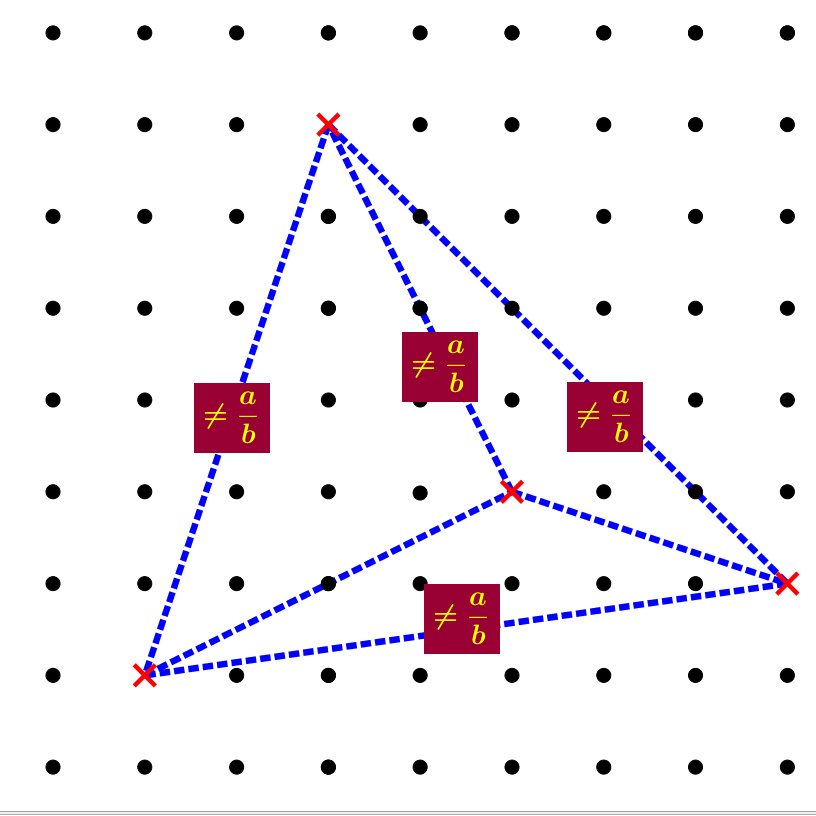Infinite gridpoints
On the grid we colored infinite number of grid points to red. Is it possible that the distance between any two red points is irrational?

This section requires Javascript.
You are seeing this because something didn't load right. We suggest you, (a) try
refreshing the page, (b) enabling javascript if it is disabled on your browser and,
finally, (c)
loading the
non-javascript version of this page
. We're sorry about the hassle.
2 solutions
Consider two grid points: P ( n ; n 2 ) and Q ( k ; k 2 ) , where n , k > 1
Then the distance between P and Q :
P Q = ( k − n ) 2 + ( k 2 − n 2 ) 2 = ( k − n ) 2 + ( k − n ) 2 ∗ ( k + n ) 2 = ( k − n ) 2 ∗ ( ( k + n ) 2 + 1 ) = ( k − n ) ∗ ( k + n ) 2 + 1
Since ( k + n ) 2 + 1 is an integer, ( k + n ) 2 + 1 is only rational, if ( k + n ) 2 + 1 is a square number, but it can't be a perfect square, since ( k + n ) 2 is a perfect square, and n , k > 1 . So P Q is irrational.
We find infinite grid points, so the statement is possible.
Please change the wording to "infinite number of grid points" instead of "infinite grid points." (As there is nothing infinite about the points themselves.) Thank you. (The problem was so much of a puzzle to me, I almost did not work it because I could not figure out what an infinite grid point might be.)
One simple example is to choose every point on a diagonal. The distance will always be an integer multiple of the square root of two.